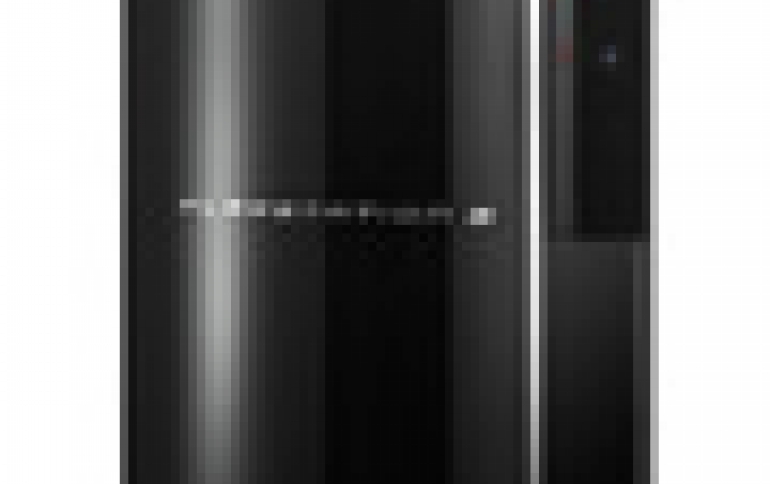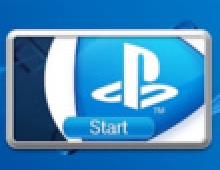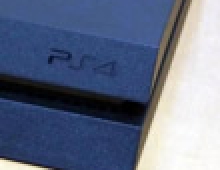
Sony PS3 to Launch Gaming Battle
When Sony launches the PlayStation 3 in Japan this weekend, they will likely fly off store shelves in no time. But the road to profitability is expected to be a long and rocky one for Sony's game business.
Sony will roll out the latest version of its blockbuster games machine in Japan on Saturday in a three-way showdown with Microsoft's Xbox 360 and Nintendo's upcoming Wii in the nearly $30 billion video-game market.
With its Walkman music players trailing far behind Apple's iPod in a market the Tokyo-based company created more than a quarter of a century ago, losing its leading position in another key market would be nothing less than a nightmare.
Sony, which has dominated the game market over the past decade, packs the PS3 with its cutting-edge technology including a Blu-ray high-definition DVD player and the Cell microchip, dubbed a "supercomputer on a chip".
The advanced functions and components guarantee lifelike graphics to please hard-core gamers. But they come at a price.
Sony, which calls the PS3 its most important strategic product of the year, plans to sell a basic model for 49,980 yen, almost double the price of the Wii and 26 percent higher than the Xbox 360.
Still, Sony is expected to rack up a loss for every PS3 it sells, and the electronics maker forecast an operating loss of 200 billion yen at its game unit for the year to March.
"The game business has been such a huge cash-cow operation for Sony," Shinko Securities analyst Hideki Watanabe said.
"As the market moves onto new-generation machines, focus is on whether or not the next big wave is coming for Sony, and if the wave is as big as the one it rode at the time of the PS2. I, for one, am quite pessimistic."
Sony has shipped more than 100 million units of PlayStation and more than 110 million units of the PS2. In the third and fourth year of the PS2 launch, the two years to March 2003, its game unit earned about 60 percent of Sony's group operating profit.
Game makers often post losses at the initial stage of a console launch by setting prices low to spur sales.
But this time around, Sony is likely to have a difficult time turning its PS3 business profitable even in the medium term due to its high prices and the strong performance of its rival machines, as well as competition from handheld games, the Internet and mobile phones for customers' limited time and money, analysts say.
Expectations are high that Nintendo will repeat the success of its hot-selling DS handheld machine with the Wii, which is slated for launch on November 19.
The company developed the Wii not to please hardcore gamers with true-to-life graphics but to entice game novices with innovative but easy-to-play games -- the same concept that helped the DS far outsell Sony's PlayStation Portable (PSP).
Nintendo last month raised its sales forecast for the DS to 20 million units from 17 million for the year to March, while Sony slashed its PSP shipment target for the same period by 25 percent to 9 million, boding ill for the PS3.
"I'm afraid the population Sony is targeting does not exactly match the population that is actually doing games," said Mitsushige Akino, chief fund manager at Ichiyoshi Investment Management.
"There always is a group of devoted game players out there, and they are eagerly awaiting the PS3. But that type of market is quite limited," Akino said.
Microsoft, the other rival, became the first company to launch the latest-generation game console by offering the Xbox 360 late last year, beating Sony by a year in time to market.
By the end of calendar 2006, the world's largest software maker expects its Xbox 360 shipments to reach 10 million, running far ahead of the PS3's expected shipment of 2 million units.
Some analysts said, however, advanced technologies loaded in the PS3 will likely give the console a long life span, and the game gear should not be judged solely by its initial performance.
"Unlike what happened to the PS2, it will be difficult for the PS3 to achieve an annual shipment of 20 million units," Morgan Stanley analyst Masahiro Ono said.
"But if you think about its Blu-ray function, network capability and hard disk scalability, its product life span can be as long as 10 years. There is a chance that the PS3 will eventually surpass the total PS2 shipment of 110 million."
With its Walkman music players trailing far behind Apple's iPod in a market the Tokyo-based company created more than a quarter of a century ago, losing its leading position in another key market would be nothing less than a nightmare.
Sony, which has dominated the game market over the past decade, packs the PS3 with its cutting-edge technology including a Blu-ray high-definition DVD player and the Cell microchip, dubbed a "supercomputer on a chip".
The advanced functions and components guarantee lifelike graphics to please hard-core gamers. But they come at a price.
Sony, which calls the PS3 its most important strategic product of the year, plans to sell a basic model for 49,980 yen, almost double the price of the Wii and 26 percent higher than the Xbox 360.
Still, Sony is expected to rack up a loss for every PS3 it sells, and the electronics maker forecast an operating loss of 200 billion yen at its game unit for the year to March.
"The game business has been such a huge cash-cow operation for Sony," Shinko Securities analyst Hideki Watanabe said.
"As the market moves onto new-generation machines, focus is on whether or not the next big wave is coming for Sony, and if the wave is as big as the one it rode at the time of the PS2. I, for one, am quite pessimistic."
Sony has shipped more than 100 million units of PlayStation and more than 110 million units of the PS2. In the third and fourth year of the PS2 launch, the two years to March 2003, its game unit earned about 60 percent of Sony's group operating profit.
Game makers often post losses at the initial stage of a console launch by setting prices low to spur sales.
But this time around, Sony is likely to have a difficult time turning its PS3 business profitable even in the medium term due to its high prices and the strong performance of its rival machines, as well as competition from handheld games, the Internet and mobile phones for customers' limited time and money, analysts say.
Expectations are high that Nintendo will repeat the success of its hot-selling DS handheld machine with the Wii, which is slated for launch on November 19.
The company developed the Wii not to please hardcore gamers with true-to-life graphics but to entice game novices with innovative but easy-to-play games -- the same concept that helped the DS far outsell Sony's PlayStation Portable (PSP).
Nintendo last month raised its sales forecast for the DS to 20 million units from 17 million for the year to March, while Sony slashed its PSP shipment target for the same period by 25 percent to 9 million, boding ill for the PS3.
"I'm afraid the population Sony is targeting does not exactly match the population that is actually doing games," said Mitsushige Akino, chief fund manager at Ichiyoshi Investment Management.
"There always is a group of devoted game players out there, and they are eagerly awaiting the PS3. But that type of market is quite limited," Akino said.
Microsoft, the other rival, became the first company to launch the latest-generation game console by offering the Xbox 360 late last year, beating Sony by a year in time to market.
By the end of calendar 2006, the world's largest software maker expects its Xbox 360 shipments to reach 10 million, running far ahead of the PS3's expected shipment of 2 million units.
Some analysts said, however, advanced technologies loaded in the PS3 will likely give the console a long life span, and the game gear should not be judged solely by its initial performance.
"Unlike what happened to the PS2, it will be difficult for the PS3 to achieve an annual shipment of 20 million units," Morgan Stanley analyst Masahiro Ono said.
"But if you think about its Blu-ray function, network capability and hard disk scalability, its product life span can be as long as 10 years. There is a chance that the PS3 will eventually surpass the total PS2 shipment of 110 million."


















